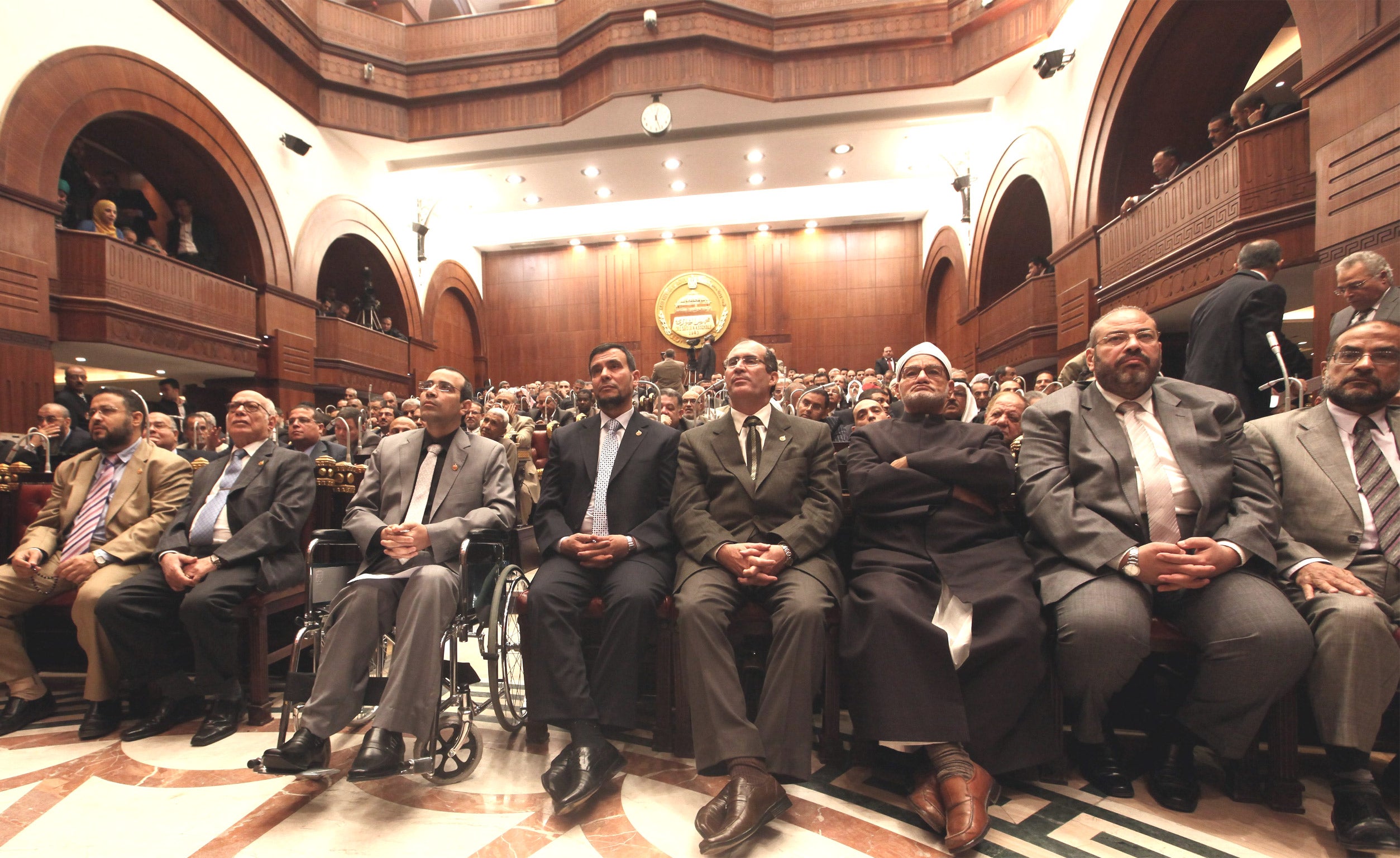Constitution will be gone in four years, say Morsi's rivals
Opposition parties are considering running under a single list at the next elections in two months

President Mohamed Morsi delivered a televised address to the nation tonight in which he congratulated Egyptians for endorsing a new constitution and called on them to ensure stability and security in the country.
Mr Morsi said the new constitution had passed in a referendum that was "totally transparent", despite the result being delayed following allegations of voting fraud.
His television appearance came as the opposition vowed to continue its fight against the Muslim Brotherhood after the Islamist-drafted constitution, which triggered weeks of political instability, was signed into law.
The new national charter, which was rushed to a public vote by the President, was approved by 64 per cent of voters, according to official results.
But the document was passed on a turnout of under 33 per cent – a sign, say opposition politicians, that it was not legitimate. "This constitution will be in the bin after four years," said Yasser Hawari, an official from the liberal Dostour Party. The result has emboldened many among the opposition to maintain their hardline stance against the Brotherhood. They believe the group has lost favour after shoe-horning the document to a public vote through an Islamist-dominated assembly. Mr Hawari said that opposition parties could ditch the constitution if they won more than half the seats in the next parliamentary election in two months.
The National Salvation Front (NSF), the umbrella coalition comprising liberal and secular parties, was due to hold a meeting last night on whether to run under a single list at the next election.
The Brotherhood meanwhile says the new constitution is a necessary step to restore political stability and economic confidence. The document provides basic protection against arbitrary detention and torture, but its critics say it does not outlaw military trials of civilians, or protect freedom of expression and religion or the rights of women and minorities.
Khaled Dawoud, a spokesman for the NSF, told The Independent he hoped pressure could be brought to bear on Mr Morsi through the courts. "This is not a constitution which Egyptians aspired to after the January uprising last year," he said.
Subscribe to Independent Premium to bookmark this article
Want to bookmark your favourite articles and stories to read or reference later? Start your Independent Premium subscription today.

Join our commenting forum
Join thought-provoking conversations, follow other Independent readers and see their replies